Politics
UAE first five-star luxury train set to roll out in 2028

DUBAI: If you’ve ever dreamed of a five-star hotel on wheels, your wait may soon be over. The UAE is preparing to launch one of its most glamorous travel experiences yet — a luxury train that will redefine rail travel across the Emirates.

Set to debut in 2028, the Etihad Rail luxury train will take passengers on a breathtaking journey from Fujairah’s coastline to the golden dunes of Liwa Desert in Abu Dhabi.
Designed and built by Italy’s Arsenale Group, the train will feature 15 opulent carriages — complete with private suites, fine-dining restaurants, a presidential suite, and a majlis-style VIP lounge inspired by Arabian elegance.
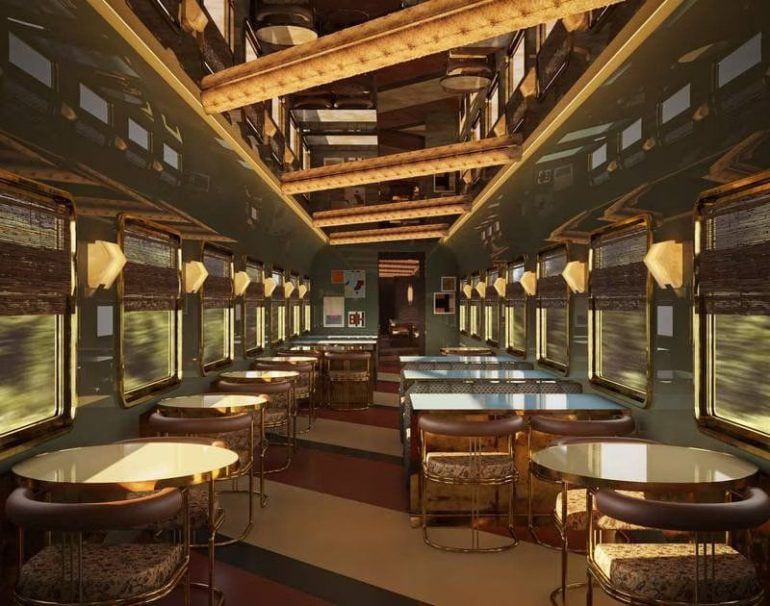
Described as a “five-star hotel on rails”, the luxury service promises travellers an experience where comfort meets adventure — from waking up to mountain views in Hatta to dining under desert stars in Liwa.
Etihad Rail’s regular passenger service is expected to begin next year, paving the way for this elite experience that could transform the way people explore the UAE.

For those who crave luxury, scenery and sophistication, the ultimate train journey is on its way.

Etihad Rail’s passenger service, which will initially connect 11 areas within the UAE, is set to launch next year. The service will eventually connect all seven emirates, transforming the country’s transport system.
Politics
Ukraine says Abu Dhabi talks with Russia ‘substantive and productive’
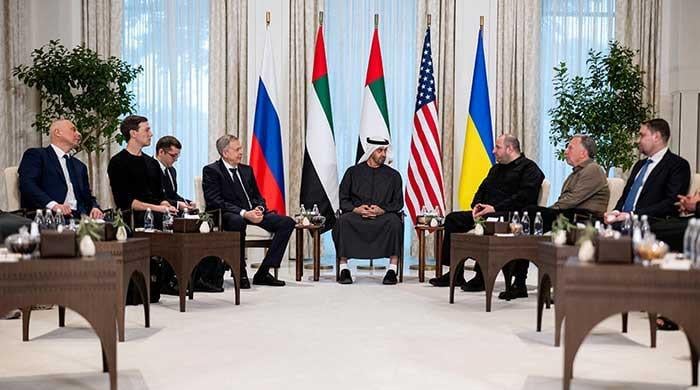
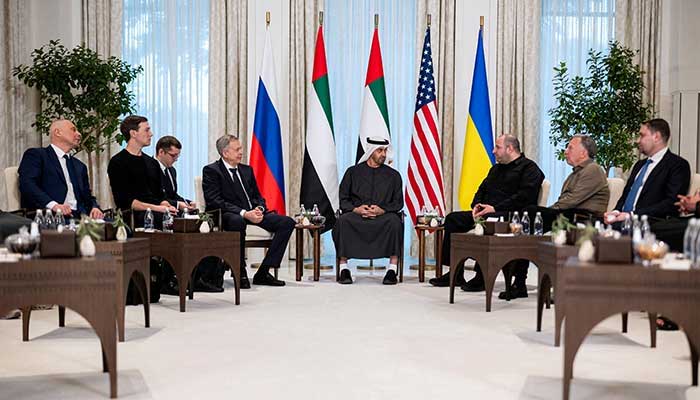
The first day of talks between Ukraine, Russia and the United States seeking to broker an end to the war in Ukraine concluded Wednesday in Abu Dhabi with Kyiv describing the negotiations as “substantive and productive”.
While there was no apparent breakthrough in the most recent round of discussions, the negotiations were set to carry on into a second day, Kyiv said.
The US-mediated talks are the latest in a flurry of diplomacy that has so far failed to strike a deal to halt the war, unleashed by Russia’s February 2022 invasion.
The war has spiralled into Europe’s deadliest conflict since World War II, with hundreds of thousands killed, millions forced to flee their homes in Ukraine and much of the eastern and southern part of the country decimated.
The talks were going on Wednesday as stepped-up Russian strikes on Ukraine’s power infrastructure left Kyiv residents in darkness and cold, with temperatures dropping as low as -20C.
But though the massive barrage threatened to overshadow progress, Ukraine’s top negotiator Rustem Umerov said the talks the first day were “substantive and productive, focused on concrete steps and practical solutions”.
As talks got underway, the Kremlin repeated its hardline demand that Kyiv give in if it wanted the four-year invasion to end.
“Our position is well known,” Kremlin spokesman Dmitry Peskov told reporters on Wednesday as the talks got underway.
“Until the Kyiv regime makes the appropriate decisions, the special military operation continues,” he said, using Russia´s term for the offensive.
In Ukraine, foreign ministry spokesman Georgiy Tykhy said Kyiv was “interested in finding out what the Russians and Americans really want.”
The content of the talks was on “military and military-political issues,” he added, without elaborating.
The main sticking point in settling the conflict is the long-term fate of territory in eastern Ukraine.
Moscow is demanding that Kyiv pull its troops out of swathes of the Donbas, including heavily fortified cities atop vast natural resources, as a precondition of any deal.
It also wants international recognition that land seized in the invasion belongs to Russia.
Kyiv has said the conflict should be frozen along the current front line and has rejected a unilateral pull-back of forces.
Trump dispatched his ubiquitous envoy Steve Witkoff and son-in-law Jared Kushner to try to corral the sides to an agreement.
Russia’s top negotiator is military intelligence director Igor Kostyukov, a career naval officer sanctioned in the West over his role in the Ukraine invasion.
Europe fears it has been sidelined in the process, even as France and Britain lead efforts to put together a peacekeeping force that could be deployed to Ukraine after any deal.
It was “strategically important for Europe to at some point be part of the negotiations,” the EU’s ambassador to Ukraine Katarina Mathernova told AFP on Wednesday in Kyiv.
Russia occupies around 20% of Ukraine, but Kyiv still controls around one-fifth of the Donetsk region.
Ukraine has warned that ceding ground will embolden Moscow and that it will not sign a deal that fails to deter Russia from invading again.
Russia also claims the Lugansk, Kherson and Zaporizhzhia regions as its own, and holds pockets of territory in at least three other Ukrainian regions in the east.
‘Prepare for the worst’
On the battlefield, Russia has been notching up gains at immense human cost, hoping it can outlast and outgun Kyiv’s stretched army.
Russian shelling of a market square in the frontline town of Druzhkivka killed seven on Wednesday, Ukrainian regional authorities said.
Following the first round of US-brokered talks in Abu Dhabi last month, Ukrainians were sceptical that a deal could be struck with Moscow.
“I think it’s all just a show for the public,” Petro, a Kyiv resident, told AFP.
“We must prepare for the worst and hope for the best.”
On the streets of Moscow, some were more hopeful.
“Everyone hopes, everyone is very optimistic about these negotiations,” says Larisa, a retiree who said she had family in Ukraine and relatives fighting at the front.
“It has to end one day, everyone’s had enough,” said Anton, a 43-year-old engineer.
Politics
Xi calls for ‘mutual respect’ with Trump, hails ties with Putin
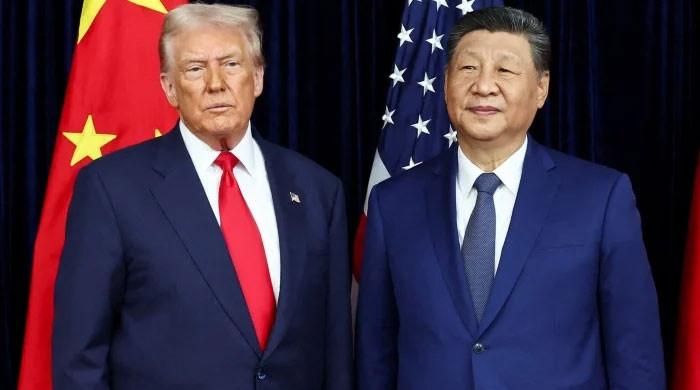
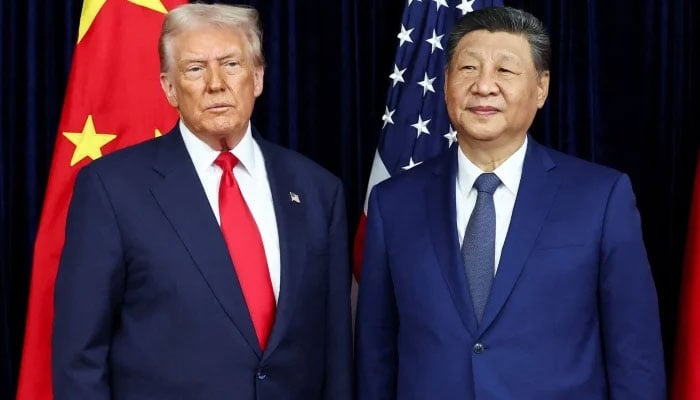
- Xi urges peaceful coexistence and win-win cooperation with US.
- Trump says US-China relationship is “extremely good” after call.
- Trump looks forward to planned trip to China, discusses trade, Iran.
Chinese leader Xi Jinping called Wednesday for “mutual respect” in strengthening relations with the United States, warning President Donald Trump in a phone call to use “caution” when selling arms to Taiwan, Beijing’s state media reported.
Xi expressed the hope that bilateral issues — amongst which trade figures highly — could be resolved amicably between the world’s two largest economies.
“By tackling issues one by one and continuously building mutual trust, we can forge a right way for the two countries to get along,” Xi said, according to state broadcaster CCTV.
“Let us make 2026 a year in which China and the United States, as two major countries, move toward mutual respect, peaceful coexistence, and win-win cooperation,” he added.
Trump, in a post on his Truth Social platform following what he called an “excellent” call, said ties between the two countries were “extremely good”.
“The relationship with China, and my personal relationship with President Xi, is an extremely good one, and we both realise how important it is to keep it that way,” Trump said.
The president said he and Xi discussed trade, Taiwan, the Russian war against Ukraine, and Iran, as well as a planned trip to China, which he said “I very much look forward to”.
On Taiwan, however, Xi warned Washington to exercise caution in arms sales to the island.
“The Taiwan question is the most important issue in China-US relations… The US must handle arms sales to Taiwan with caution,” Xi said, according to state broadcaster CCTV.
The United States approved $11 billion-worth of arms to Taiwan in December, Taipei said.
Putin’s ‘dear friend’
Speaking by video call several hours earlier, Xi and Putin hailed the strengthening of Chinese-Russian ties.
The two countries have sought to present a united front against the West, with ties deepening since Moscow´s 2022 invasion of Ukraine.
A Kremlin aide said the Xi-Putin call was “friendly and trusting” and lasted nearly an hour and a half.
Moscow has increasingly relied on China throughout the Ukraine conflict to keep its economy afloat, faced with crippling Western sanctions.
“Since the beginning of the year, the international situation has become increasingly turbulent,” Xi told Putin, calling for “deeper” Chinese-Russian coordination, according to state TV.
Addressing Xi as his “dear friend”, Putin voiced a similar message, in a video broadcast on Russian state TV.
The Kremlin said Putin had accepted invitations to visit China in the first half of 2026 and attend the APEC regional summit hosted by Xi in November.
Xi also reiterated his commitment to the international system with the United Nations at its core, after Trump in January unveiled plans for a “Board of Peace” that critics see as an attempt to rival the UN.
The calls took place as Russian, Ukrainian and US negotiators met in Abu Dhabi for a new round of talks on ending the almost four-year war, which has turned into Europe’s worst conflict since World War II.
Putin and Xi discussed their “opinions” on the United States, views that, according to the Kremlin, “practically matched” each other.
And “special attention was given to the tense situation in Iran”, said Kremlin aide Yuri Ushakov.
The calls follow a series of meetings between Xi and various leaders in recent months, as he consolidates diplomatic support in the face of an increasingly unpredictable United States.
Politics
US, Iran to seek de-escalation in nuclear talks in Oman: regional official
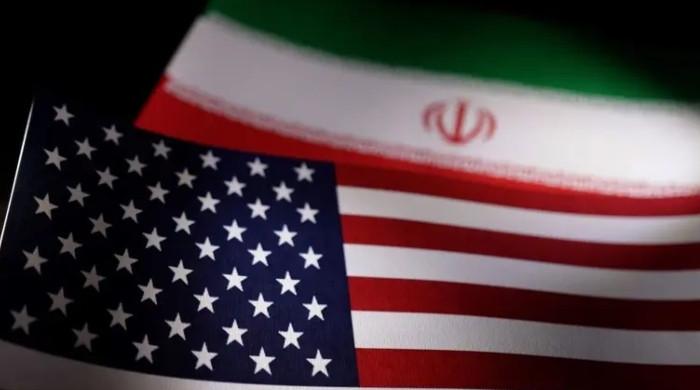
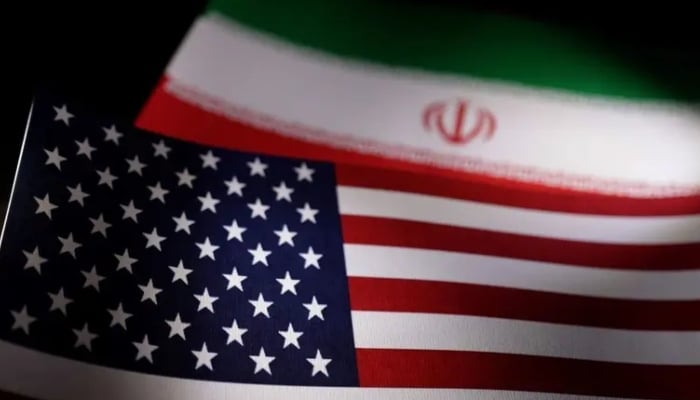
- Tensions escalated after anti-government protests in Iran.
- Meeting moved to Oman as Iran demands bilateral talks.
- Iran wants talks to focus only on its nuclear programme.
The United States and Iran are due to hold talks in Oman on Friday after Tehran requested a change of venue to limit negotiations to its nuclear programme, a regional official said, with a build-up of US forces in the Middle East raising fears of a confrontation.
Iran wanted the meeting to take place in Oman as a continuation of previous rounds of talks held in the Gulf Arab country on its nuclear programme, asking for a change of location from Turkiye to avoid any expansion of the discussions to issues such as Tehran’s ballistic missiles, the regional official said.
Iran has said it will not make concessions on its formidable ballistic missile programme — one of the biggest in the Middle East — calling that a red line in negotiations.
Tehran, which says it replenished its stockpile of ballistic missiles since coming under attack from Israel last year, has warned that it will unleash its missiles to defend the itself if its security is under threat.
The regional official, speaking on condition of anonymity, said Iran had since the beginning stressed that it would only discuss its nuclear programme, while Washington wanted other issues on the agenda.
Oil prices extended gains on Wednesday after the US shot down an Iranian drone and armed Iranian boats approached a US-flagged vessel in the Strait of Hormuz, rekindling fears of an escalation between Washington and Tehran.
Iran sought bilateral talks
US President Donald Trump has warned that “bad things” would probably happen if a deal could not be reached, ratcheting up pressure on Iran in a standoff that has led to mutual threats of air strikes and stirred fears of a wider war.
On Tuesday, the US military shot down an Iranian drone that “aggressively” approached the Abraham Lincoln aircraft carrier in the Arabian Sea, the US military said, in an incident first reported by Reuters.
Trump told reporters at the White House on Tuesday: “We are negotiating with them right now.” He did not elaborate and declined to say where he expected talks to take place.
A source familiar with the situation said Trump’s son-in-law, Jared Kushner, was due to take part in the talks, along with US Special Envoy Steve Witkoff and Iranian Foreign Minister Abbas Araqchi.
Ministers from several other countries in the region including Pakistan, Saudi Arabia, Qatar, Egypt and the United Arab Emirates had also been expected to attend, but a regional source told Reuters that Tehran wanted only bilateral talks with the US.
In June, the United States struck Iranian nuclear targets, joining in at the close of a 12-day Israeli bombing campaign.
More recently, the US navy built up forces in the region following protests against the government in Iran, the deadliest since the 1979 revolution.
Trump, who stopped short of carrying out threats to intervene, has since demanded nuclear concessions from Iran, sending a flotilla to its coast.
Iran’s leadership is increasingly worried a US strike could break its grip on power by driving an already enraged public back onto the streets, according to six current and former Iranian officials.
The priority of the diplomatic effort is to avoid conflict and de-escalate tension, a regional official told Reuters earlier.
Tanker incident
Iranian sources told Reuters last week that Trump had demanded three conditions for the resumption of talks: zero enrichment of uranium in Iran, limits on Tehran’s ballistic missile programme and an end to its support for regional proxies.
Iran has long said all three demands are unacceptable infringements of its sovereignty, but two Iranian officials told Reuters its rulers saw the ballistic missile programme, rather than uranium enrichment, as the bigger obstacle.
An Iranian official said there should not be preconditions for talks and that Iran was ready to show flexibility on uranium enrichment, which it says is for peaceful, not military purposes.
Since the US strikes in June, Tehran has said its uranium enrichment work has stopped.
In another incident on Tuesday, this one in the Strait of Hormuz, the US Central Command said Iran’s Islamic Revolutionary Guard Corps forces had approached a US-flagged tanker at speed and threatened to board and seize it.
Maritime risk management group Vanguard said the Iranian boats ordered the tanker to stop its engine and prepare to be boarded. Instead, the tanker sped up and continued its voyage.
-

 Sports1 week ago
Sports1 week agoPSL 11: Local players’ category renewals unveiled ahead of auction
-

 Entertainment1 week ago
Entertainment1 week agoClaire Danes reveals how she reacted to pregnancy at 44
-

 Sports1 week ago
Sports1 week agoCollege football’s top 100 games of the 2025 season
-

 Business1 week ago
Business1 week agoBanking services disrupted as bank employees go on nationwide strike demanding five-day work week
-

 Politics1 week ago
Politics1 week agoTrump vows to ‘de-escalate’ after Minneapolis shootings
-

 Sports1 week ago
Sports1 week agoTammy Abraham joins Aston Villa 1 day after Besiktas transfer
-

 Tech1 week ago
Tech1 week agoBrighten Your Darkest Time (of Year) With This Smart Home Upgrade
-

 Entertainment1 week ago
Entertainment1 week agoK-Pop star Rosé to appear in special podcast before Grammy’s






